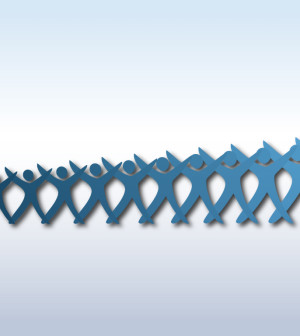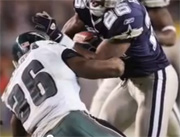- 10 Strategies to Overcome Insomnia
- Could Artificial Sweeteners Be Aging the Brain Faster?
- Techniques for Soothing Your Nervous System
- Does the Water in Your House Smell Funny? Here’s Why
- Can a Daily Dose of Apple Cider Vinegar Actually Aid Weight Loss?
- 6 Health Beverages That Can Actually Spike Your Blood Sugar
- Treatment Options for Social Anxiety Disorder
- Understanding the Connection Between Anxiety and Depression
- How Daily Prunes Can Influence Cholesterol and Inflammation
- When to Take B12 for Better Absorption and Energy
Football Fans May Overestimate Chances of Favorite NFL Team


As the National Football League kicks off its 2015 season this weekend, fans across the country are certain that this is the year for their team.
But a new study shows that pro football fans and dedicated sports reporters often overestimate their team’s chances of going all the way.
“We should perhaps take the predictions of experts assigned to a single team with a pinch of salt as they may not appreciate the bigger picture,” study senior author Brad Love, a professor of psychology and language sciences at University College London, said in a university news release.
“Previous studies suggest that just following a team intensely can lead to bias, so that is also probably going on here. Fans and experts alike can get focused on improvements or changes for the team that they follow, and don’t realize that it’s an arms race with other teams who are also improving,” Love explained.
Football fans aren’t just overly optimistic about their own team’s prospects; they’re also extra pessimistic about a rival team’s chances, the study showed. Researchers said their findings can shed light on a concept known as “optimism bias.”
The “NFL is the perfect system to study optimism bias because it’s zero sum — one team winning means another team losing,” Love said.
More than 1,100 NFL fans were asked to predict how many games their favorite and most hated teams would win during the 2015 season. Since each team plays 16 games that produce only one winner, the overall average number of wins for each team is always eight. Yet, the average number of wins for the participants’ “favorite” teams was 9.59, suggesting every fan was overly optimistic about their team’s chances of winning.
The findings were published Sept. 9 in the journal PLOS ONE.
The researchers also examined ESPN data on 32 sports reporters who were each assigned to one NFL team. When asked to predict how many games their team would win, the reporters, like the NFL fans, were all overly optimistic, the study found.
The researchers found that the New England Patriots were the most liked team among the study participants. They were also the most hated in the NFL, the study found. Both fans and rivals of the Patriots assumed they would perform well in 2015, but the team’s fans expected one more win than the haters did.
The discrepancy between fan and rival predictions were only about one game for the Denver Broncos, Seattle Seahawks and Philadelphia Eagles. There were larger optimism gaps for the Cincinnati Bengals and Arizona Cardinals, the study noted.
“It’s interesting that both fans and rivals of high-profile, successful teams are generally in agreement about their expected performance,” said Love. “By contrast, we see the largest optimism gap for lower-profile teams that receive little national media coverage, enabling fans and local media to construct their own optimistic narratives.”
The study’s authors advised fans who bet on games to consider their optimism bias before putting money on their favorite team since their expectations may not be realistic.
More information
The U.S. National Cancer Institute provides more information on unrealistic expectations, or optimistic bias.
Source: HealthDay
Copyright © 2026 HealthDay. All rights reserved.










